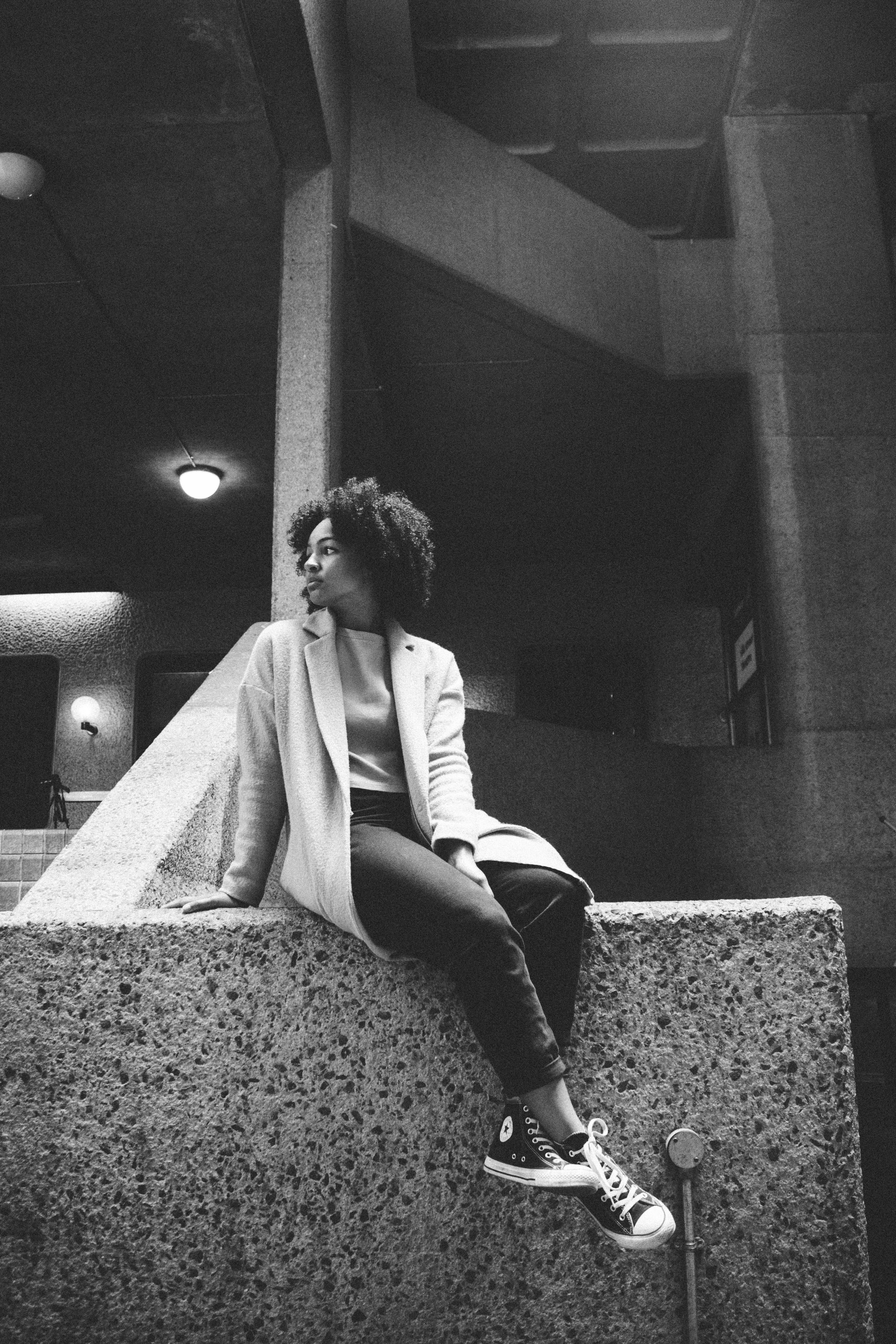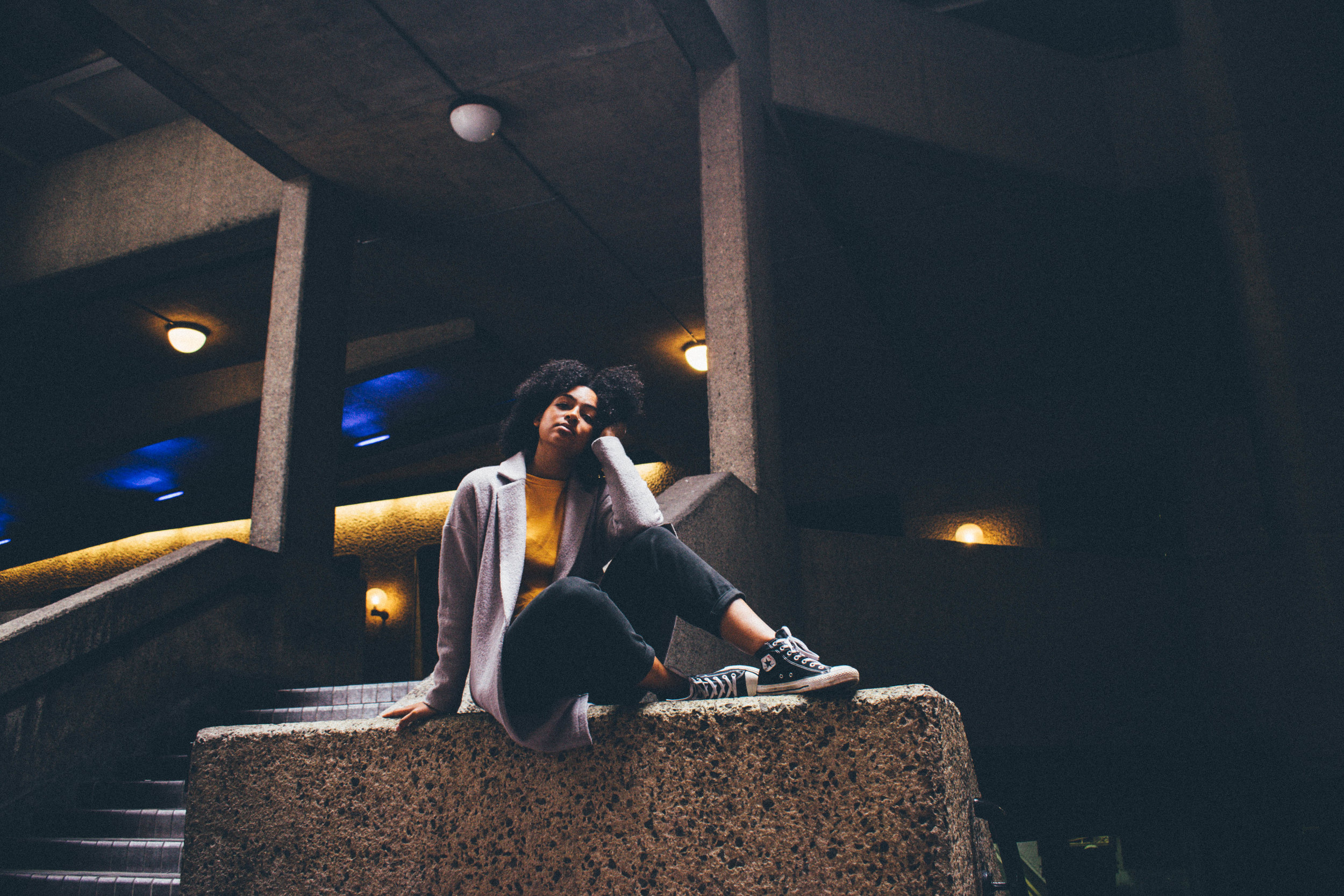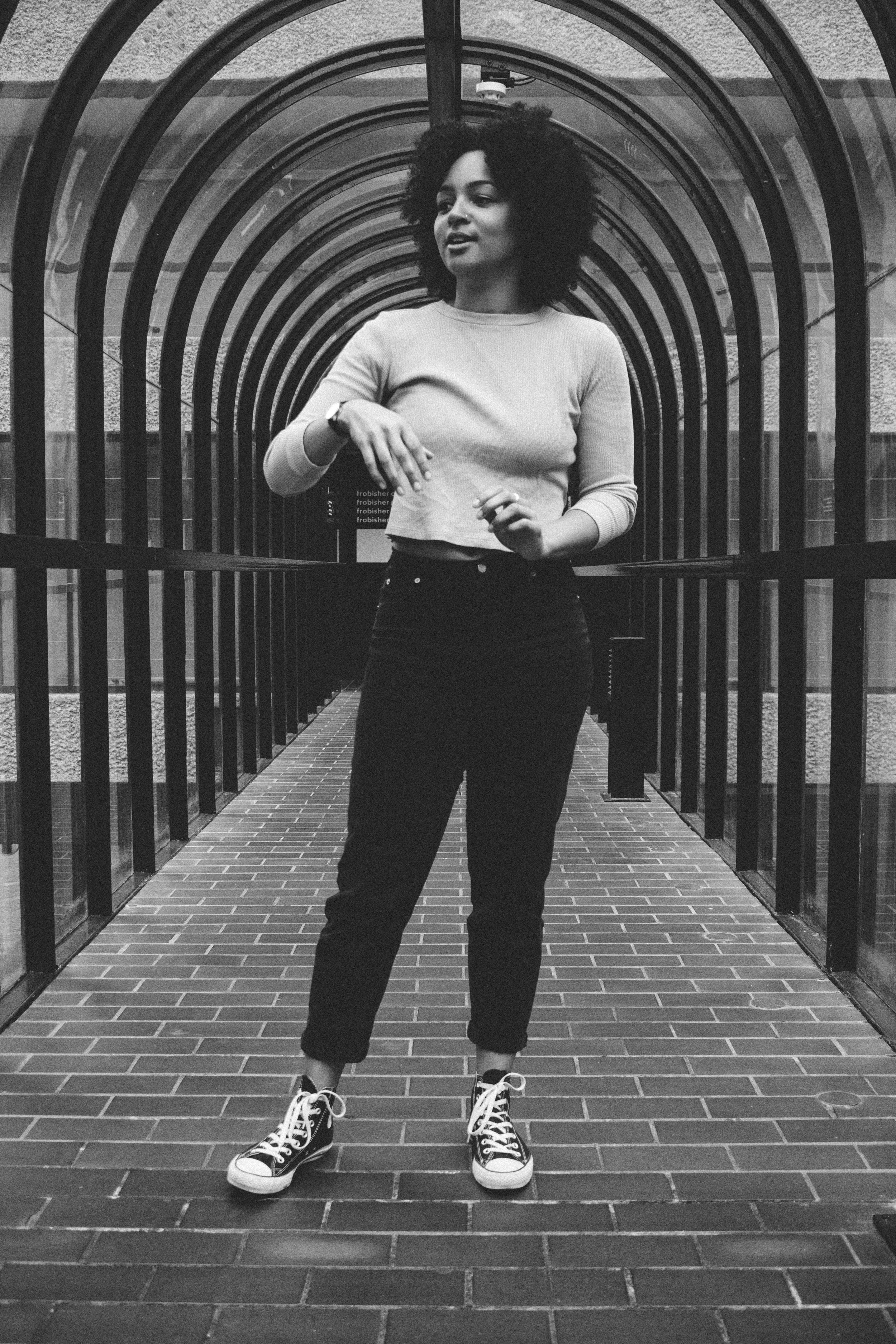Ayeisha Thomas-Smith
What’s your full name?
Ayeisha Thomas-Smith
How old are you?
25
Where were you born/brought up?
Born in Birmingham, moved to Leeds 7-18 and then London ever since.
What do you do for a living?
I work for a not-for-profit network that builds the capacity of people for social and economic justice. This includes working with and training organisers, activists, campaigners and others in skills like how to speak in the media, developing a coherent political strategy and collaboration methodologies.
What’s your ethnicity?
Mixed black Jamaican and white British.
How did your mum and dad meet?
I’m not actually sure!
How old were you when you became conscious that people saw you differently? What impact did that have on you?
Very early on, when I was in the early years of primary school, so 6 or 7 I guess. I knew no one else really looked like me, but a couple of kids also asked me why I was brown and called me names. It was obviously upsetting, but I also think it instilled in me a sense of otherness that ultimately protected me and drove me to be ambitious and always focused on my goals.
Did you want to change your appearance when you were a child?
Yes, absolutely. I hated my hair so much and did everything I could to change it - chemicals, straighteners etc. I also had a period of bulimia in my teens when I wanted to change my natural body type to look like the girls around me. I spent a good chunk of my life hating the way I look!
Describe your most memorable moments when you were made aware of being mixed race.
A black woman on a bus verbally abused me, asking who I thought I was. She said, you’re not black, you’re not white, who the fuck do you think you are? It was really upsetting and alienating. There’ have been lots of incidents of racial abuse based on my blackness other than that, but that one sticks out the most as it was directed at my ‘mixedness’. Another time, I was told in a black salon that they ‘didn’t do light-skinned girls hair’ - after I had made an appointment and travelled across London. This was humiliating and quite scarring really. I find the whole conversation around blackness, especially political blackness so interesting, because as a mixed race person you have absolutely no claim to whiteness, despite it being half of you.
Do you feel your parents prepared you for life as a mixed race person?
Not at all. I don’t have a relationship with my father, or the black side of my family at all really, which made me feel very isolated and lonely growing up in an all white environment. My mum had mental health issues and we struggled with poverty and other issues, so she wasn’t really able to provide the emotional support I needed even if she’d known how. It was really hard at times, but I’m not really sure how either of my parents could have prepared me as they aren’t mixed themselves...it’s a tricky one.
What ignorant comments have you heard about being mixed-race that really rile you?
Most of the comments are more about being a person of colour generally really, but I’ve had a lot of people make assumptions about my parents and what they must be like, i.e. absent father, irresponsible mother etc. It also really annoys me when men openly fetishize ‘light-skin’ girls over darker women, and make comments on that basis that are meant to be flattering. It’s just plain racism and misogyny.
What do you wish people who aren’t mixed-race understood?
That being mixed race is a distinct and unique experience, which can be very isolating and confusing. There is no country in the world or place we could go where everyone looks like us, and we embody a particular contradiction that can be hard to live with. Oh and that we are not just one of our identities, we have hybridity inherent within us.
Do you think mixed race people/families are well represented in the media?
Yes - overrepresented I’d say. My sister is a model and she’s constantly getting approached for jobs, especially for more mainstream ‘family’ brands like Dove and Boots. Her best friend however who’s black, is told by people like channel 4 that she has to have a weave that looks like ‘white hair’ to get an audition! It’s a very poor attempt at diversifying the faces we see in the media.
Back in the late 19th century/early 20th century being mixed race held a stigma, as it was clear proof of interracial relations which was seen as an affront to society’s morals. Do you think it’s easier nowadays to be mixed race or is it more that racism has become subtler?
I definitely think we live in an institutionally racist society, (which I spend a lot of my time organising against) but I would say in my lifetime the stigma around being mixed race specifically has decreased - but this could be because I moved to London when I was 18 and haven’t looked back!
Is being mixed race a burden or a blessing for you?
Definitely a blessing.
Have you felt a struggle with your identity? If so, how did you deal with it and if you are now at peace with who you are, how did you come to a place of self-acceptance?
Certainly when I was younger I felt this struggle, because I just didn’t look like the girls around me and experienced a lot of racism at school. As I’ve gotten older I’ve embraced my identity more, if only because I’ve been forced to! But also because I’ve been more and more surrounded by inspirational women of colour in my work and activism. I think being mixed race and black is a beautiful gift, and I’m grateful for it every day.
What advice would you give to your younger self?
Embrace who you are! Stop trying to make yourself more like other people and focus on being you.






